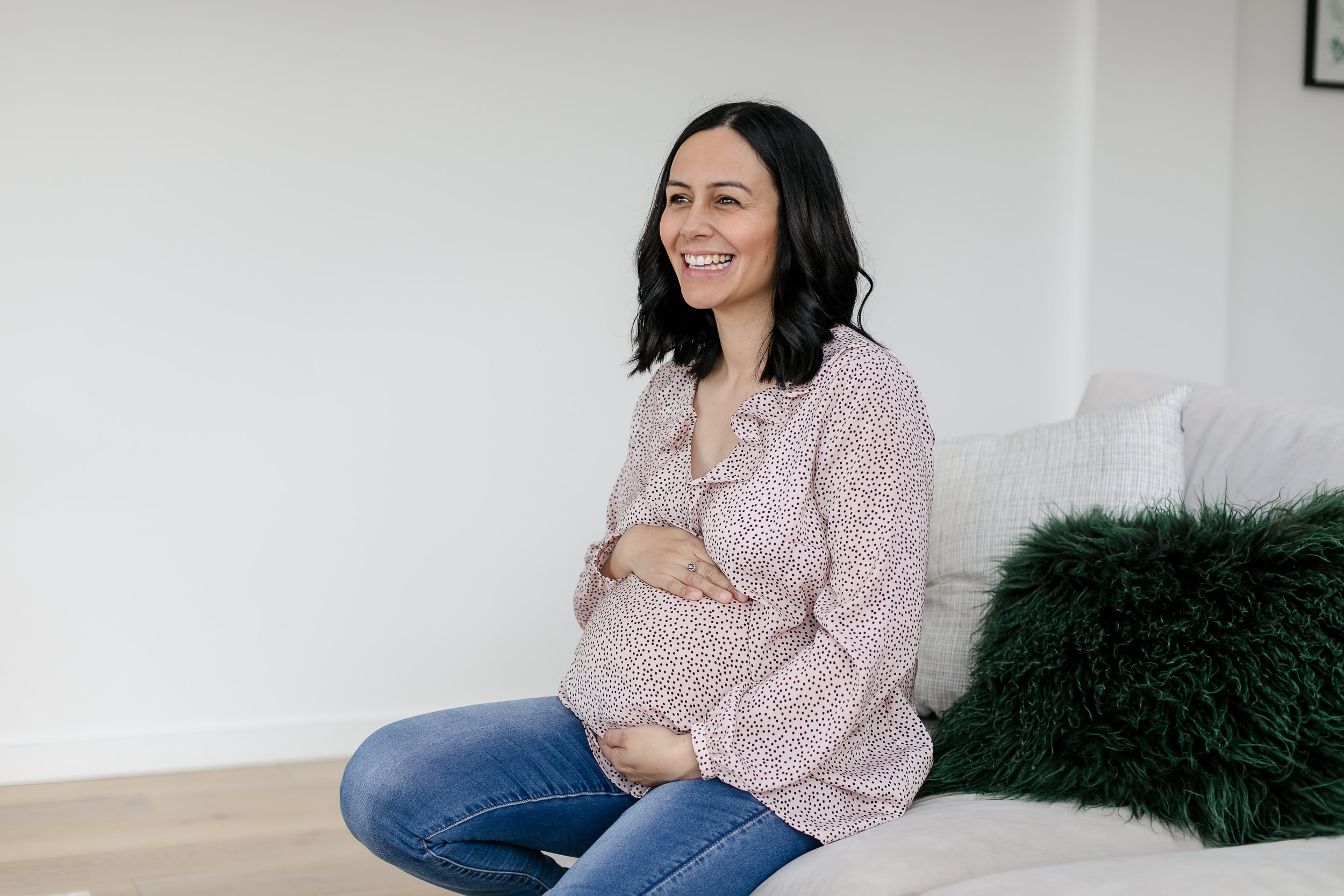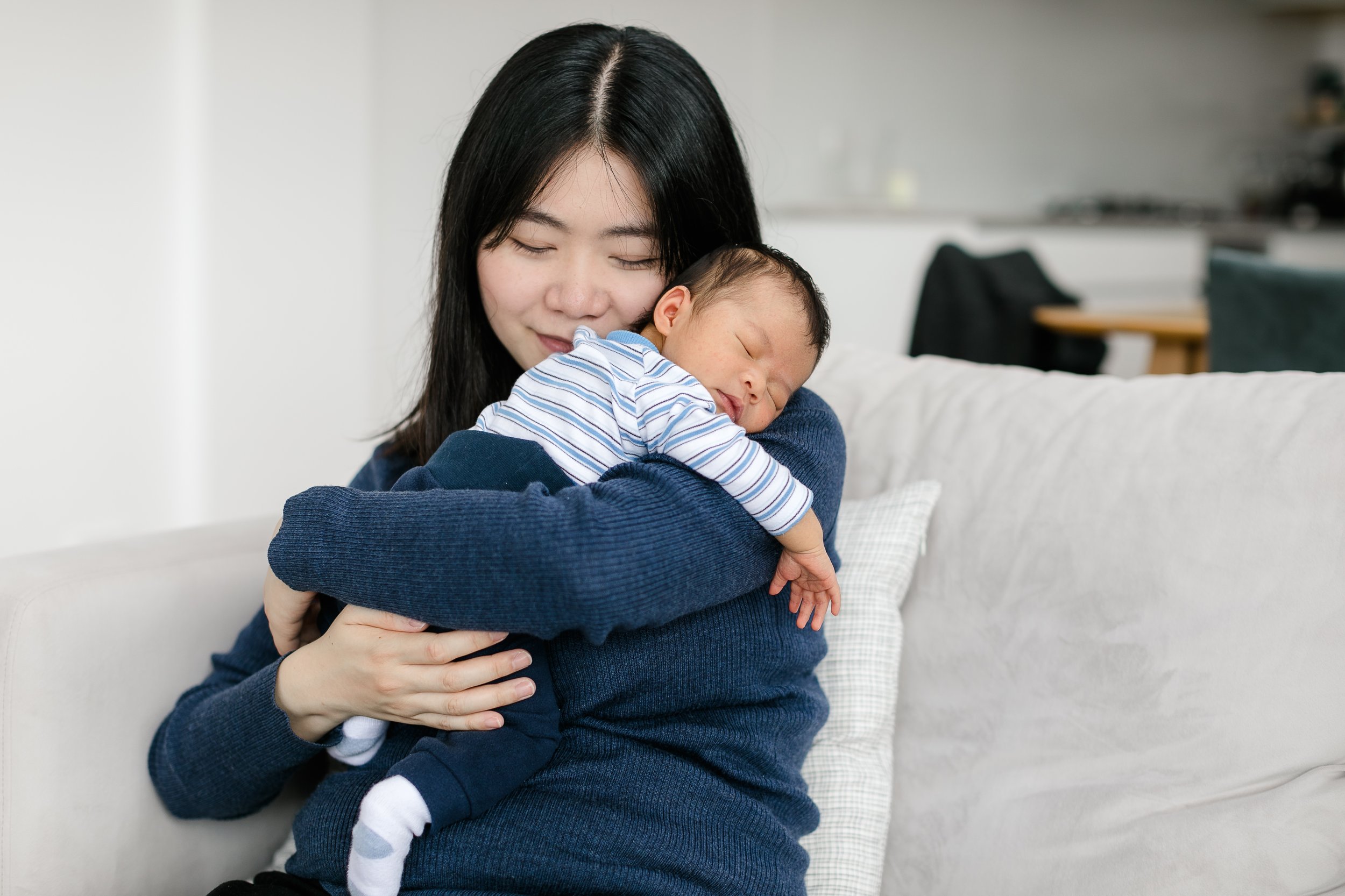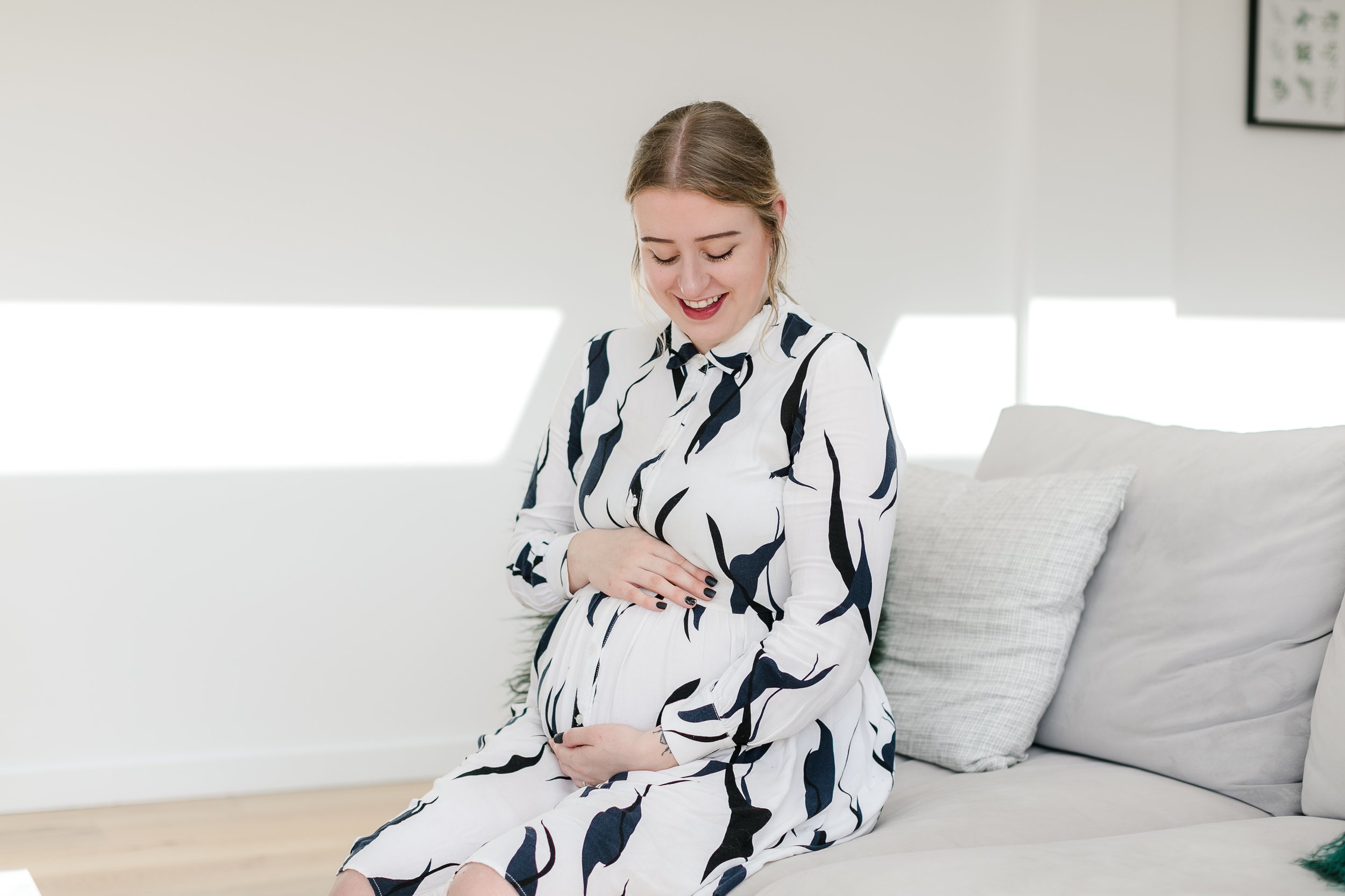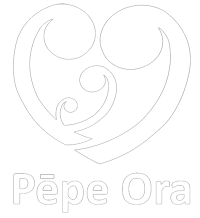


Taha Wairua
Spiritual Wellbeing
The way people view wairua can be very different. Wairua is spoken or unseen energies. For some, wairua is an internal connection to the universe. For others, wairua is your connection to who and what you are, where you have come from and where you are going.
Early Days
Finding a lead maternity carer (LMC) is an important first step during early pregnancy. Most hapū people choose to have a midwife. Midwifery care is free and your midwife can refer you to an obstetrician if necessary. Alternatively, some hapū people opt to pay for an obstetrician as their LMC.
If you're having trouble finding a midwife in Wellington, Porirua, or Kāpiti call the 'Find a Midwife' service at 0800 346 369 or you can visit www.findamidwife.org.nz, which links to www.ccdhb.org.nz/our-services/a-to-z-of-our-services/maternity/ for more information.
If you are having difficulty finding a midwife in the Hutt Valley, contact Maternity Enquiries on 0800 488 628 (0800HUTMAT) or visit: http://www.huttmaternity.org.nz/i-need-a-midwife/i-need-a-midwife/
The hospital community midwifery teams may be able to assist you in finding an LMC midwife. If you are unable to find an LMC midwife, the community midwifery teams can care for you during your pregnancy.
Under the Code of Health and Disability Services Consumer Rights, healthcare services may be provided to you only if you make an informed choice and give informed consent to it. Informed consent is the process of talking about options with your healthcare provider so you can make an informed decision about your health care. This includes the option of saying no to a treatment or procedure. When you use a health or disability service in New Zealand, you have the protection of a Code of Rights.
Some people may find the B.R.A.I.N acronym a useful tool when making informed decisions about their healthcare options. For example:
B- Benefits. What are the benefits of this particular test/treatment/intervention?
R – Risks. What are the risks if I do the test and what are the risks if I don’t do the test/treatment/intervention?
A – Alternatives. What are the other options?
I – Intuition. What does my gut tell me?
N – Nothing. What would happen if I did nothing?
Ensuring you understand your options will give you a solid foundation to make the choice of informed consent or refusal.
SmartStart has information about trying to become pregnant, pregnancy and the stages of your baby’s life up until they are 6 years old. It includes information about their behaviour and development, as well as other tips and ideas related to health, parenting and education.
After you’ve had your pēpi, you are legally required to register the birth. It’s free, but there is a charge if you want to order a birth certificate.
You can also register for Best Start payments, using the same application form as the birth registration. Best Start is a government payment of $65 per week, for each child born on or after 1st July 2018. If you’re a New Zealand resident, you can get Best Start payments until your pēpi turns one, no matter what you/your whare earns. Best Start payments won’t usually start until Paid Parental Leave finishes. Receiving Best Start payments won’t affect any other payments or benefits you get. Once your pēpi turns one, Best Start payments become income tested.
SmartStart also has information about financial help you may be eligible for, as well as parenting information and tips.
Good oral health is important if you’re planning to conceive or if you are pregnant. Poor oral health can lead to complications such as miscarriage and preterm labour.
Hormone changes in pregnancy can make you more susceptible to dental and gum disease. It’s important to brush twice daily with fluoridated toothpaste, floss once daily and continue with regular dental appointments.
Folic acid helps the body to make new cells. Folic acid is important because it can help to prevent birth defects of a baby’s brain and spine, such as spina bifida. Take a folic acid tablet every day for 4 weeks (1 month) before you might become pregnant through to 12 weeks after becoming pregnant. It is less expensive to have this prescribed.
Iodine helps the body to grow and develop, especially the brain. Because babies get iodine from their mothers, pregnant and breastfeeding women need more iodine. As well as choosing foods high in iodine, take one iodine-only tablet every day when pregnant and breastfeeding. It is less expensive to have this prescribed.
Vitamin D is needed for strong bones and joints as well as healthy muscle and nerve activity. If you don’t have enough vitamin D during pregnancy, your baby may be born with low vitamin D levels. If you have darker skin, spend most of your time inside, have liver or kidney disease or are taking certain medicines, you are at a higher risk of vitamin D deficiency. If you are worried that you don’t get enough vitamin D, or you have a higher risk of vitamin D deficiency, talk to your midwife, GP or nurse practitioner.
He Huarahi Tamariki provides a second chance education for students unable to complete their formal education through pregnancy or the birth of a child. Located in Linden, He Huarahi Tamariki is a modern, purpose built complex which includes Kids Count - The Griffin School, a highly successful Early Childhood Centre, catering for the children of He Huarahi Tamariki students. The student support programme includes working with social agencies, transport, visiting doctor and student meals.
Cost: Free
Visit: https://www.hht.school.nz/
Phone: 04 232 0956

Support with Clothes, Bedding, Equipment, Healthy Homes and Housing
Finding out you’re pregnant is a life-changing moment. It can be exciting but also scary if you’re unprepared or lacking support. If you’re pregnant, aged under 23 and are seeking help, The House of Grace invite you to get in touch with us.
Cost: Board payments include food, power, and internet
Email: info@thehouseofgrace.org.nz
Phone: 0800-920-5667
Greenstone Doors is a charitable trust which functions as a pregnancy focused centre where women and whānau are able to receive accurate and professional information and care.
Greenstone Doors provide a free baby clothing service to families in need in the Hutt Valley Area. This service is available for babies up to the age of one year.
Cost: Free
The Nest Collective is a registered charity that works alongside midwives, social workers and other community partners to provide free packs of baby and children’s essentials for whānau in need.
The Nest Collective give packs of new, pre-loved, handcrafted and repurposed essentials including clothing, toys, nappies, bedding, books and more. Items are sourced through donations (both physical and financial) and provided to families via social workers, kaiāwhina, midwives, nurses and other local community partners.
If you need support with clothing and equipment, speak to your midwife or Well Child Tamariki Ora nurse about a referral to The Nest Collective.
Cost: Free
The Wellington Curtain Bank provides properly fitted, lined, preloved curtains and tracks (where needed) to families across the Greater Wellington Region. The Wellington Curtain Bank only uses good quality donated curtains. If your house gets cold and damp and is poorly insulated, the Wellington Curtain Bank are happy to provide curtains for the main living area and for bedrooms where pēpi sleep.
Cost: Free
Well Homes offer a range of healthy housing services to help households live in warm, dry and safe homes. Depending on your living situation, they can check your house for free, offer energy advice and discuss health and social support
Cost: Free
Phone: 0800 675 675
St Vincent de Paul work with Nest Collective to provide packs for mother and babies. Whilst most pregnancy and baby items are passed on to Nest Collective for these packs, St Vincent de Paul can assist with items on a case by case basis.
Cost: Free
Visit: https://www.vinnies-wellington.org.nz/
Phone: 04 389 7122
Address: Level 1, 207 Riddiford St
Newtown
Wellington 6021
Whether you are sleeping rough, struggling to make ends meet or can’t put food on the table – The Wellington City Mission is here to help you. The Wellington City Mission can support you in a number of ways, regardless of your circumstances. They provide supported transitional housing, financial mentoring, assistance with food support, advocacy work with Work and Income and help accessing health services among other things. Wellington City Mission will walk alongside you, advocate on your behalf and support you to achieve empowerment, transformation and fullness of life.
Cost: Free
Visit: https://wellingtoncitymission.org.nz/
Phone: 04 245 0900
Learning About Pregnancy, Giving Birth & Early Parenting (Antenatal Education)
Antenatal classes provide information that help parents make informed decisions throughout their pregnancy, birthing and parenting experience. They also offer an opportunity for you to connect with other people in your area who will have a pēpi at a similar time to you.
EMPWR childbirth antenatal classes are designed for those identifying as part of the LGBTQIA+ Takatāpui community. The classes designed by queer midwives are grounded in a celebration of queer whānau and equity for pregnant queer whānau.
Find out more and register for antenatal classes on: https://www.empwr.nz/
This service offers informative sessions held on Mondays and Thursdays from 10 to 11:30 am, covering essential topics related to pregnancy, childbirth, and early parenthood.
The sessions address subjects such as breastfeeding, labor and birthing, safe sleep and bathing baby demonstrations, nutrition and physical activity during pregnancy and breastfeeding, early child bonding, development, parenting, and immunization.
All sessions throughout the entire year share the same Zoom link, making it convenient for participants to join. The provided links below serves as the universal access point for the informative sessions.
Meeting URL: https://cmhealth.zoom.us/j/98707488114
Meeting ID: 987 0748 8114
Zoom (Webinar) Antenatal Classes
Zoom (Webinar) Breastfeeding Classes
Zoom (Telehealth) Lactation Consultancy Service
All you need is good internet and a device with a camera and microphone for education all in the comfort of your own home. Ideal for rural and busy urban families.
Cost:
Weekday antenatal classes - $90.00, and weekends $110
Weekday breastfeeding classes - $25.00, and weekends $30
Lactation consultancy, initial appointment 50 minutes - $125.00, and follow-up appointment 30 minutes, $65.00
Check out our website: www.thriveunder3.co.nz
Contact details: info@thriveunder3.co.nz
Vibe
Our antenatal courses are specific to our young parent(s) to be, 24 years and under, to give them knowledge and confidence going into labour, birth and early postpartum and the information needed to make the best-informed decisions for themselves, baby and whānau.
Cost: Free
Visit: https://www.vibe.org.nz/
Contact details:
Anna - (027) 280 1936
Antonia - (027) 371 1185
Hapū Wānanga Te Raukura ō te Aroha offer kaupapa Māori antenatal classes in the Wellington Region. It is a 1 day Wānanga held once a month at Whitireia campus, Porirua.
Whānau get the opportunity to kōrero about different kaupapa including traditional Māori birthing practices, changes during hapūtanga, labour & birth, breastfeeding, safe sleeping and much more.
Whānau also get the opportunity to make an ipu whenua, muka pito tie and porotiti for their pēpi. These Wānanga are FREE for whānau with kai provided and taonga to take home.
Facebook: https://www.facebook.com/HapuWa/
Register: https://forms.gle/F24ZfKEjRKmbNpMZ9
Te Awhi O Te Rito is held on Te Kakano O Te Aroha Marae, Moera, making muka ties, ipu whenua and pēpi koha packs. Te Awhi O Te Rito also offers post hapū wānanga wrap-around services.
Cost: Free
Pasefika Talanoa Education are 3 Pasefika midwives offering free pregnancy talanoa education (antenatal education) sessions for pregnant Pasefika women. The sessions aim to empower women with knowledge to help them understand the journey they are on, enable them to make decisions for themselves during and after their pregnancy and provide education that is fun and in a safe environment.
Cost: Free
Anofale is a series of 11 group sessions held on Wednesday mornings during term time 11.30am-12.30pm at the Pasifika Hub, 2 Dudley St, Hutt City. The Anofale groups support learning and conversations in a Pacific context about the journey through Antenatal, Labour and Postnatal periods. Anofale is free to attend and designed specifically for the needs of Pasifika mama and families.
Cost: Free
Taeaomanino Trust provide holistic and culturally responsive antenatal education. Learn together with extended family (if you choose) about welcoming baby, and what to expect during pregnancy, labour and beyond.
Cost: Free
Visit: https://www.taeaomanino.org.nz
Phone: 0800 345 345
Parents Centre childbirth education (antenatal) classes encourage pregnant women to make informed choices about their labour and birth, and to gain information. Parents Centre help classes to form groups to support each other in the new world of being parents.
Parents Centre previously operated across the Greater Wellington region and nationally. Some Parents Centre’s are independently run, so are still operating and offering classes. Details about classes that are available are below:
Lower Hutt Parents Centre: Email antenatal.lhpc@gmail.com to book into a class or book via Eventbrite - https://www.eventbrite.co.nz/o/lower-hutt-parents-centre-19987785908
Johnsonville: Rachel Dufield’s website: allyouneedislove.co.nz/antenatal or email: allyouneednz@gmail.com
Newtown: Email enquiries@birthwise.org.nz
Island Bay: Email Liora Noy – lioranoy3@gmail.com (online & in-person)
Cost: Variable depending on location. Some classes are free.
Wellington Antenatal Classes are for a pregnant person and one support person (partner, family or friend). They are relaxed, informal and jam packed with ideas, tips, and much needed information.
Classes are offered via zoom, as well as in Newtown, Porirua and Kāpiti.
Cost: Free
Ora Toa provide holistic and responsive antenatal education. Whānau or support people are welcome to join sessions. Classes are offered on Wednesday evenings over four weeks. Classes are offered over Zoom for those that are unable to attend. A light meal is provided for those that attend in person.
Phone: 04 2384 914 or 04 237 0131
Email : Matuapepi@oratoa.co.nz
Kāpiti Youth Support provides supportive and tailored antenatal education for young parents under 25, from our specialist parenting support worker. This includes support groups as well as one on one birth education, for hapū youth as well as their wider whānau.
Cost: Free
Visit: http://kys.org.nz/
Phone: 04 9059597
Formed by parents, forparents over 25 years ago, Birth Wise is proud to provide Wellington whānau with an excellent antenatal programme and a postnatal community of like-minded individuals. Birth Wise:
provides information that helps parents make informed choices for birth and parenting
recognises each birth as a unique experience
provides parents and caregivers with ongoing support through a Birth Wise – organised reunion, postnatal support, a network of parents, and up-to-date online and library resources.
Cost: $250 per couple
Calmbirth does not advocate for one way to give birth; it’s about helping couples create a positive birth experience, no matter how that birth unfolds. The program is designed to teach mothers to use their inner resources to work with birth and to help them understand the process of birth so they can help the baby into the world, instead of resisting the labour journey.
Cost: $425
Visit: https://calmbirth.nz/

Learning About Breastfeeding
Breast milk is the perfect food for your pēpi. It’s all your pēpi needs to eat and drink for the first 6 months. Breast milk protects your pēpi against colds, tummy bugs, infections and allergies. It also helps to protect your pēpi against sudden unexpected death in infancy (SUDI). Most antenatal classes will encompass breastfeeding education. Please speak to your midwife about the benefits of breastfeeding and antenatal hand expressing.
Zoom (Webinar) Antenatal Classes
Zoom (Webinar) Breastfeeding Classes
Zoom (Telehealth) Lactation Consultancy Service
All you need is good internet and a device with a camera and microphone for education all in the comfort of your own home. Ideal for rural and busy urban families.
Cost:
Weekday antenatal classes - $90.00, and weekends $110
Weekday breastfeeding classes - $25.00, and weekends $30
Lactation consultancy, initial appointment 50 minutes - $125.00, and follow-up appointment 30 minutes, $65.00
Check out our website: www.thriveunder3.co.nz
Contact details: info@thriveunder3.co.nz
As well as offering childbirth and parenting classes, Wellington Antenatal offer free breastfeeding classes monthly, as well as weekly breastfeeding drop-in sessions in Johnsonville at the Collective Community Hub, 33 Johnsonville Road on Thursdays, 10-11.30am (during school terms).
Cost: Free
Mama Aroha – This is a smartphone app that you can download to help learn the key principles of breastfeeding.
Search for “Mama Aroha” in both the Apple and Google Play app stores.
Ministry of Health - https://www.health.govt.nz/your-health/pregnancy-and-kids/first-year/helpful-advice-during-first-year/breastfeeding-perfect-you-and-your-baby
Plunket - https://www.plunket.org.nz/caring-for-your-child/feeding/breastfeeding/
Health Navigator - https://www.healthnavigator.org.nz/healthy-living/b/breastfeeding-basics/
Kellymom - https://kellymom.com/category/bf/
Perinatal Anxiety & Depression Aotearoa (PADA) - https://pada.nz/breastfeeding/
Keeping Baby Safe
Sudden unexpected death in infancy (SUDI) is when a pēpi dies in an unexpected and initially unexplained way. Most SUDI occurs when pēpi are sleeping in an unsafe environment. SUDI is a leading cause of preventable death for pēpi in Aotearoa. Thinking about SUDI can be very frightening for new parents, but there are many ways in which you can protect your pēpi and greatly reduce the risk of SUDI.
Safe sleep for P.E.P.E
Place baby on his or her own baby bed, face clear of bedding and in the same room as the caregiver.
Eliminate smoking in pregnancy and protect baby with a smoke free whānau, whare and waka.
Position baby flat on his or her back to sleep, face up.
Encourage and support breastfeeding and gentle handing of baby
Ask your LMC or Tamariki Ora Well Child nurse about a safe sleep bed (wahakura or Pēpi-Pod) for your pēpi.
Crying is one of the only forms of communication your pēpi has. Sometimes pēpi cry because something is wrong and sometimes pēpi cry because they want your attention and love. Often you won’t be able to find a reason why your pēpi is crying. This can be stressful, particularly if your pēpi is crying for a long period of time. Shaken baby syndrome usually happens when a parent or cargiver shakes pēpi because they are frustrated with them.
Shaking a pēpi can lead to permanent brain damage, paralysis, blindness, deafness, seizuers, broken bones, developmental delays and death.
You have the power to protect. Have a plan in place for when pēpi won’t stop crying. If you’re feeling frustrated, put pēpi in a safe space and take a break. Come back when you are ready to comfort your pēpi.
If you are worried your pēpi is unwell, contact your midwife, GP or Tamariki Ora Well Child provider.
Never leave your pēpi alone with someone you think might lose control. If you think you might lose control, don’t pick up your pēpi. Talk to a trusted relative or friend and don’t be embarrassed. It’s healthy to know when you’ve reached your limit.
Keeping pēpi safe in the car is one of the most important ways you can protect them. A child restraint technician can help you check that your car seat is safe for pēpi and properly installed. Talk to your midwife or health provider about car seat options if need any support finding one.
Visit: https://www.kidshealth.org.nz/child-car-seats to find a car seat technician near you.

Places to Give Birth
For many whānau, birthing at home is the right choice. For those with a midwife LMC and without a need for specialist input, birthing at home is a safe and supportive option. Talk to your midwife, or look for a midwife that can support you with birthing at home.
If you need extra specialist support with your birth or pregnancy, your LMC will support you to access the right care for you.
For more information visit the Health New Zealand website - Choosing where to give birth.
At this link you can find a documentary that has been created by local midwives to provide information about the experiences of homebirth as a safe and supportive option for giving birth.
For more information about homebirth, visit: https://wellingtonhomebirth.weebly.com/
Birthing at Wellington Hospital is most appropriate for whānau needing specialist care with their pregnancy or pēpi. Some whānau may choose to birth at Wellington Hospital when they don’t require specialist care, too.
For details on parking, after-hours access, and directions to the Birthing Suite, please visit: https://www.ccdhb.org.nz/our-services/a-to-z-of-our-services/maternity/giving-birth-in-our-maternity-units/wellington-hospital-maternity/
Virtual tour: https://youtu.be/5gvexyw4KLo
Families living in the Hutt Valley who do not birth at home, may choose to birth at Hutt Hospital. Lead maternity carers use the facility for hospital births. Hutt Hospital maternity team is made up of obstetricians, doctors, midwives and nurses. Hutt Hospital has a birthing suite, maternity ward, maternity assessment unit and a special care baby unit.
For many whānau, primary birthing is the right choice. Kenepuru maternity unit is a safe, supportive space to give birth when you don’t require extra specialist intervention.
To find visiting hours and directions to the unit, please visit: https://www.ccdhb.org.nz/our-services/a-to-z-of-our-services/maternity/giving-birth-in-our-maternity-units/kenepuru-maternity-unit/
Virtual tour: https://www.youtube.com/watch?v=PFSI9nJ-mHs
For many whānau, primary birthing is the right choice. Paraparaumu maternity unit is a safe, supportive space to give birth when you don’t require extra specialist intervention.
To find visiting hours and directions to the unit, please visit: https://www.ccdhb.org.nz/our-services/a-to-z-of-our-services/maternity/giving-birth-in-our-maternity-units/paraparaumu-maternity-unit/
Virtual tour: https://www.youtube.com/watch?v=Q-kjFWzXsCI
For mum:
Comfortable (loose fitting) clothes to wear in birthing suite and on the postnatal ward
Clothes to wear home
A nightie or pyjamas that you are able to breastfeed in (if choosing to)
Personal toiletries (shampoo, soap, toothpaste, toothbrush, hairbrush and hair ties, lip balm)
Underwear big enough to hold a maternity pad
Maternity pads
Maternity bra (no underwire) or singlet
Any medications that you take regularly
Items to make you feel comfortable such as own pillow
Phone and charger
Meals will be provided for the birthing person but you may wish to bring snacks for during and after labour
For pēpi:
Nappies and wipes
2 wool/merino or cotton singlets
2-3 long sleeved stretch and grows or 2-3 long sleeved tops and pants
Woollen socks/booties
Woollen hat
Woollen cardigan
Swaddle/wrap
Woollen blanket
Car seat

Hapai Taumaha Hapūtanga is a free service of health care professionals to assist women in unplanned or crisis situations during pregnancy. We provide a safe, confidential, non-judgemental space for you to consider your options and find a way forward. Exploring together the current challenges you are faced with in a supportive environment. When able assisting in finding suitable accommodation. Assessing your existing strengths/support systems and helping you to create new support networks where necessary. Assistance with emergency food. Providing you with information about your options if this is a path you may want to consider. Continuing to provide you support as long as you need it. Facilitating care and providing support for all pregnancy loss including post abortion grief.
Cost: Free
Website: https://crisispregnancysupport.org.nz/
Contact details:
0800 004 277
lowerhutt@crisispregnancysupport.org.nz
Hours: 8:30 – 5pm Monday – Friday